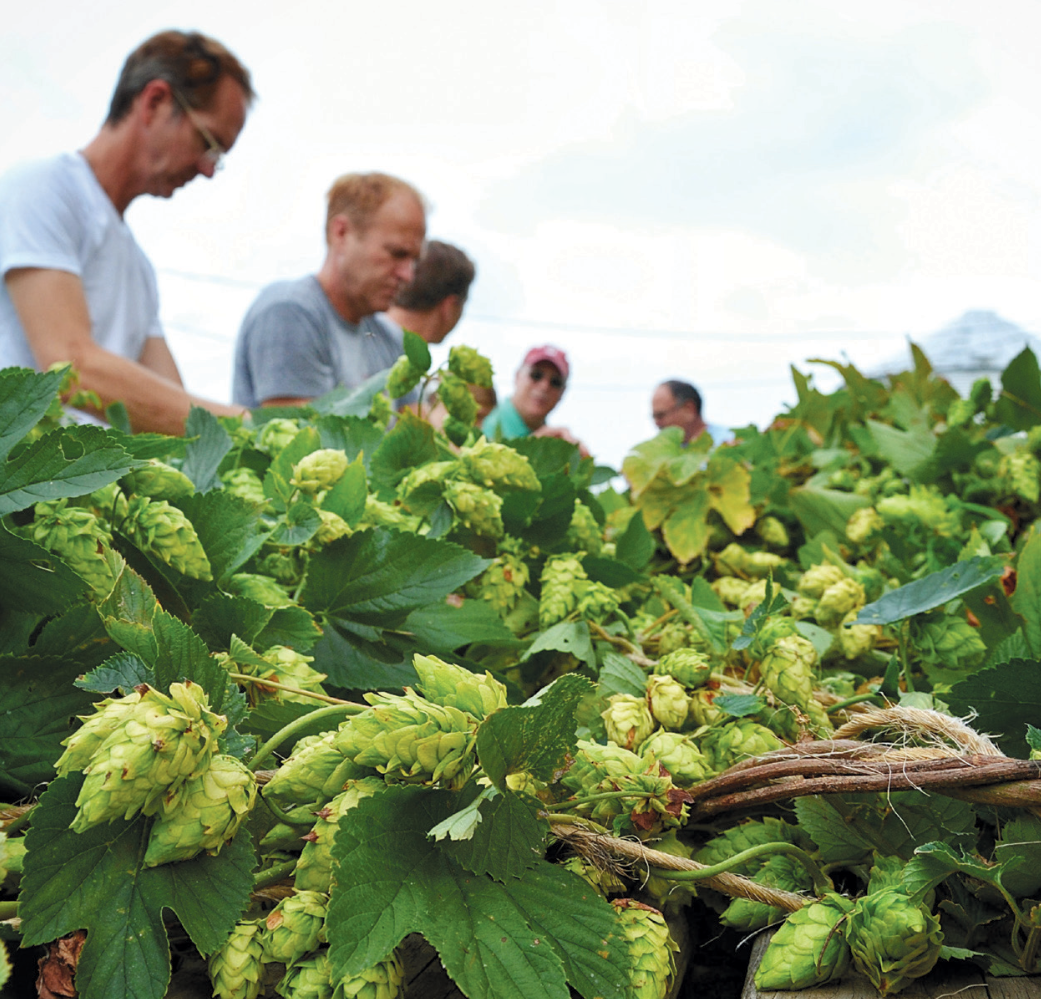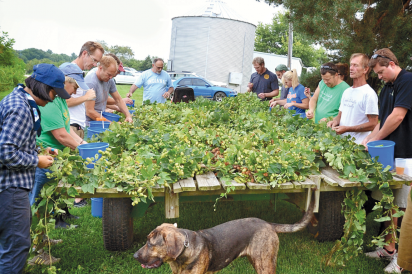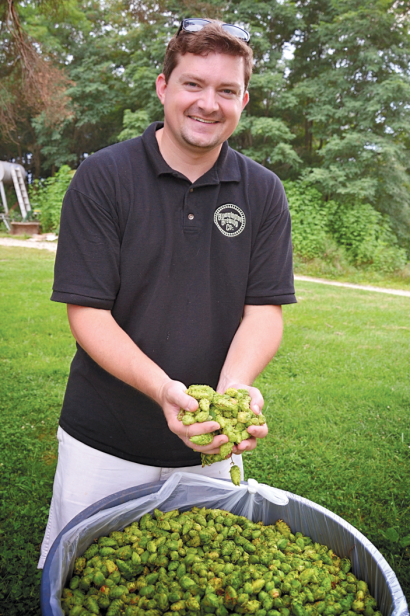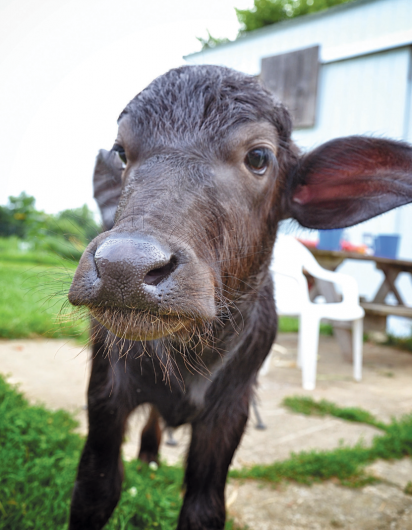Hoosier Hops Industry Growing Steadily
Hops, along with water, barley and yeast, comprise the basic ingredients of beer. Breweries rely on hops to produce flavorful, aromatic beverages. And just as the number of craft breweries in Indiana is quickly growing--to nearly 100 into the fall of 2014, the number of hops farms in increasing, too.
Ryan Hammer, of Three Hammers Farms, is one of the new generation of hops farmers. Hammer tends 400 hops plants in Knightstown, Indiana, known for being the site of the filming of Hoosiers.
“We put in four varieties of ten plants each in the spring of 2012. We had good success with the first-year plants and sold eleven pounds of CTZ to Sun King Brewing that fall,” Hammer says. “They used the hops to wet-hop a small batch of Osiris pale ale and called it Three Hammers Wet Hopped Osiris.”
Hammer was hooked after that positive experience. “We tripled our plants the next year, then doubled our plants this year to expand to ¼ of an acre.”
In addition to expanding the farm, Hammer has expanded the varieties of hops he grows.“We planted Cascade and Chinook in 2013 and also added more of the Nugget and CTZ to fill the rows. That year, Sun King purchased Cascade and Chinook wet (undried) hops. They used those in their Wet Hopped & Sticky which might be the first wet hopped beer in Indiana made with Indiana hops.”
Other breweries in Indianapolis have used locally grown hops from Three Hammers, too. “Flat 12 used wet Nugget hops for an all wet-hopped beer, and Indiana City Brewing Co. used Chinook in their Red Collar Imperial Amber as well as Nugget in another beer. Sun King and Indiana City are slated to brew both of those beers again this year with our hops.”
Farming hops brings challenges not found with other common Indiana crops like corn and soy. Hammer says it’s expensive, partially because of the required trellis system, and also because the plants need a lot of water, especially late in the season when rainfall is infrequent.
Water can be a problem in a different way, too. “With all of the water going to the plants, mildew is a big issue. Powdery and Downy mildew are what drove hop production out of the midwest to the Yakima Valley (Washington state) where it is much drier, but they still deal with those problems there too,” Hammer says.
Monoculture farms like Three Hammers aren’t the only places in Indiana producing hops; some breweries are even getting in on the action.
Bloomington Brewing Company grows organic Cascade hops at their Loesch Farm on the west side of Bloomington. Head brewer, Floyd Rosenbaum, has been growing the hops for six years and has harvested them in late summer for the past five years, using them shortly thereafter for the brewery’s annual Homegrown Ale.
Though Bloomington Brewing Company doesn’t plan on selling their hops, the crop has generally done well. “We’re planning on getting some more plants, about 50, next year,” Rosenbaum says.
There’s plenty of room for growth in the Indiana hops industry, says Ryan Hammer.
“I would say we are behind Michigan by about 5 to 10 years as far as our growth in craft beer and the agriculture that supports it. I don’t believe this is a bad thing. The growth of craft beer and its supporting industries is just starting to ramp up and is still not up to pre-prohibition levels. I don’t think we will grow, in size, to surpass the Pacific Northwest, but I don’t think that is our goal, either.”
Hammers says growing hops in Indiana is important for our communities. “The closer the person growing the food or product is to the person consuming or eating the food is nothing but good for every aspect of human culture. There is something very special about being able to exchange hard-earned money and buy and ultimately consume something that someone put passion and time into to create. People are seeing that now more than ever before.”
Random Hops Facts
• This past summer, Purdue Extension offered webinars about growing hops. The university is growing hops at their Meigs Farm.
• The cost of establishing a 1-acre hop farm is about $13,000, according to the SARE program (Sustainable Agriculture Research & Education).
• Lupulin, a brownish-yellow powder, is the active, aromatic ingredient in hops and has mild sedative effects.
• Indiana has nearly 100 craft breweries, though the vast majority of beer purchased in the state is still from major companies like Anheuser-Busch InBev and MillerCoors.
• The Indiana State Fair introduced craft beer for the first time to attendees.








